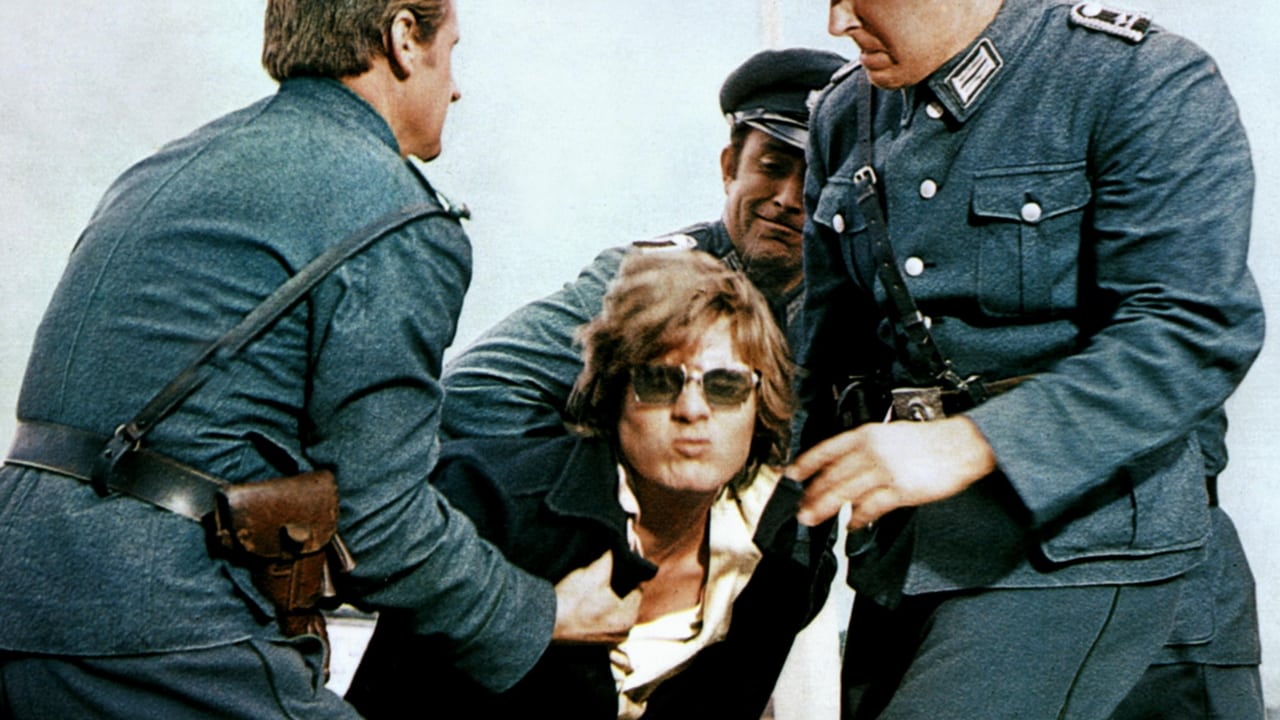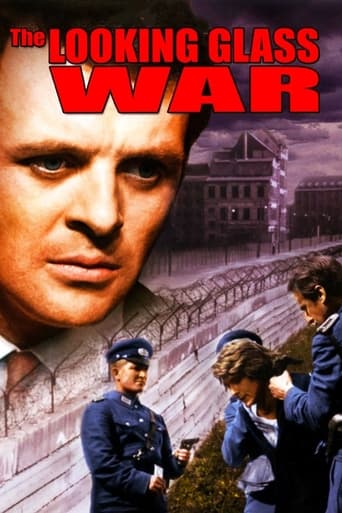


A disappointing adaptation of a good book, with a key aspect of the latter (inter-departmental rivalry) being omitted. I located an on-line copy after the usual frustrations of working through links to Youtube that led to short clips, paid subscription copies and so on.With several jumps in the plot, I did wonder if the version I saw had been hacked around, but it was the 108 minutes stated here on IMDb. Christopher Jones was unconvincing and uninspiring as Leiser, his fight with Avery a prolonged interpolation and his scrabbling around to get under the wire in the dark protracted. And how lucky he was to come across an attractive girl and child (what happened to him?) in the middle of nowhere - and to bump into her again in a cafe.The best things were the wide, open European spaces and Anthony Hopkins' acting
... View MoreI'm a big fan of Le Carre, and I love the movie versions of 'The Spy Who Came in From the Cold' and 'Tinker Tailor Soldier Spy'. This movie is a real disappointment though. It differs significantly from the book in ways that seem pointless. The actor who plays Leiser looks like he's stepped off the set for 'Two Lane Blacktop' and looks frankly ridiculous as a Pole under cover in East Germany. The East Germany scenes themselves look like they were filmed in California (perhaps they were). The changes to the plot actually change a fundamental premise of the book. All in all, this film is not really worth the bother. Head for the book version or the 'The Spy Who Came in From the Cold' if you've not yet seen it.
... View MorePOSSIBLE SPOILERS In the novel, British military intelligence in 1961 was looking for something to justify its existence. Some ambiguous aerial photos suggested the East Germans had constructed a missile site. Instead of sharing this information with... who? (sorry I don't know the other intelligence service. MI6?) the military people, who had not run an operation in years, decided to do what they knew best: send one of their now aged WWII spies with WWII equipment ( a 40 lb. tube radio with different crystals to change transmitting frequencies) into East Germany to verify the existence of the missile installation and radio back his findings. The East Germans were mystified by the strange radio messages until an old sergeant vaguely remembered how English spies had sent out messages 20 years earlier. The poor spy's floundering around created an international incident and the military intelligence people were ordered to pull the plug on the operation. LeCarre's caustic comments on the military intelligence service were swept aside and the movie was made treating all the bumbling as a serious spy story. Ah well. In 1961 the cold war was very serious business.
... View More'The Looking Glass War' is the most wistful member of LeCarre''s gritty spy genre that I'm aware of. Unlike the spies in most other stories, spies who are professionals, jaded by years of lies and deception, the main character in LGW is simply a young man, a Pole who has jumped ship, who allows himself to be recruited by the British because it gives him a chance to stay in England where he has a pregnant girlfriend. His motives, while not entirely chivalric, are honest. This is in stark contrast to the convoluted game that swirls around him. In 'The Spy Who Came in From the Cold', we learn that Control has marked the innocent Leamus from the beginning for sacrifice. But in 'Looking Glass War' none of the characters seems in control. They believe they are caught up in a perilous deluge, compelled to do whatever they can to keep themselves and their nation from being drowned.The juxtaposition of innocence, beauty, and youth against anxiety, iciness, and sacrifice throughout the film does not act to declare the future dead, as Orwell seems to do in his '1984', but to offer some hope that, despite ideological machinations, there still exist exuberance and room for dreams. To quote the Who, 'the kids are alright.'
... View More